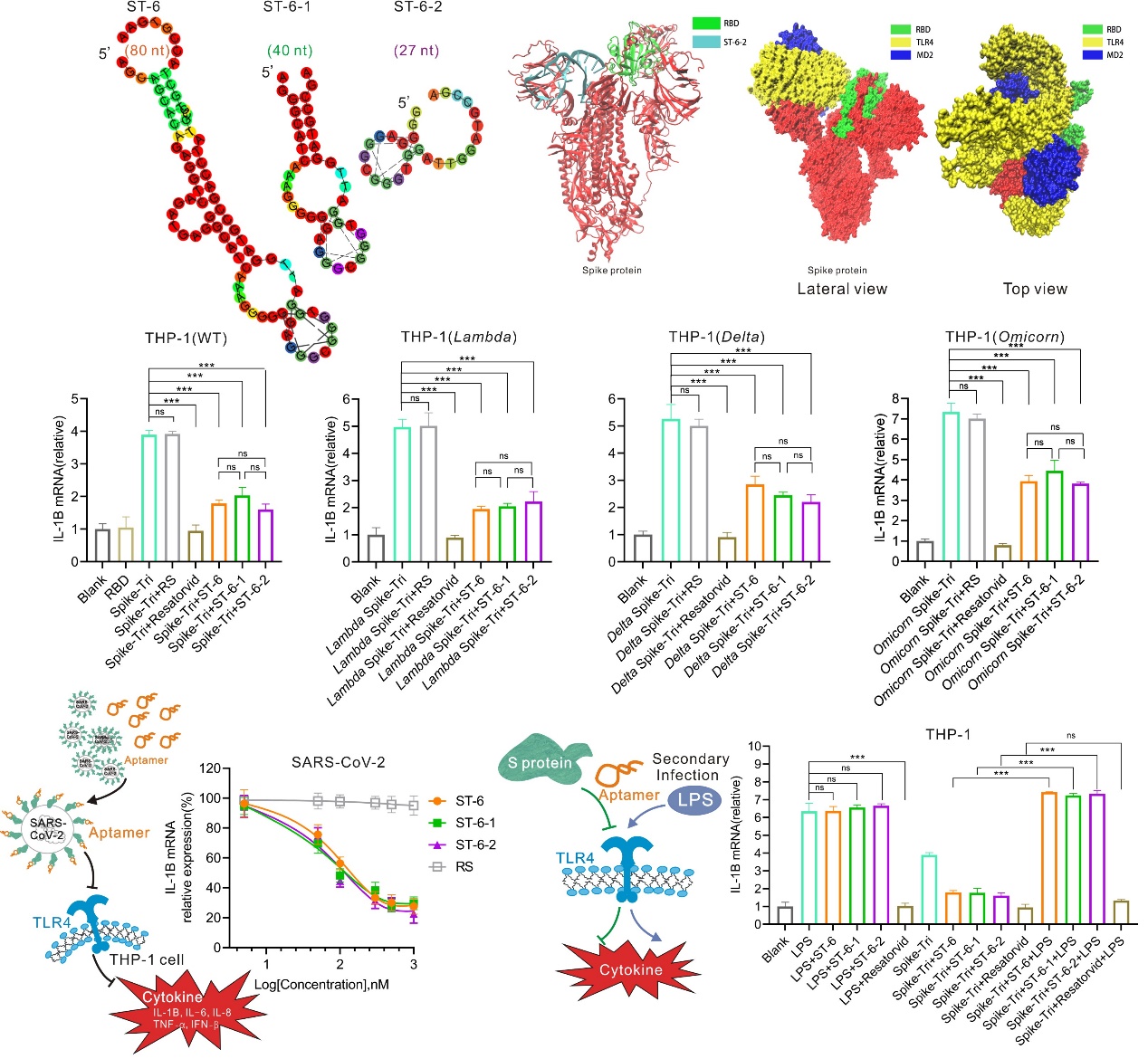Since the end of 2019, severe acute respiratory syndrome coronavirus 2 (SARS-Cov-2) has infected about 530 million people worldwide, resulting in about 18 million deaths. “Excessive inflammatory responses lead to increased mortality from the severe acute respiratory syndrome coronavirus 2 (SARS-CoV-2). Nearly all deceased patients infected with SARS-CoV-2 are found to have cytokine storm syndrome and viral sepsis. They are prone to superinfections exacerbating the course of disease. Therefore, preventing hyperinflammation is critical for avoiding this cytokine storm syndrome. Currently, specific immunomodulators are under clinical research or application, including targeting inflammatory cytokines (sarilumab, anakinra, tocilizumab, infliximab, adalimumab) and inflammatory pathway (baricitinib, ruxolitinib). However, they may also increase the risk of superinfections. Therefore, it is urgent to develop highly selective anti-inflammatory drugs which don’t cause superinfections to effective treatment of SARS-CoV-2.” (Introduction)

The research team of Professor Xu Song/Yongyun Zhao of the College of life Science (CLS), Sichuan University, has recently published an article entitled “Aptamer Blocking S-TLR4 Interaction Selectively Inhibits SARS-CoV-2 Induced Inflammation” in Signal Transduction and Targeted Therapy (IF=18.187). The researchers screened and identified a nuclear acid aptamer that can inhibit SARS-CoV-2 induced inflammation. The aptamer specifically blocks the interaction between spike protein and TLR4 receptor, and selectively inhibits the inflammation.

“In summary, three aptamers that effectively prevent inflammation by specifically blocking S-TLR4 interaction are developed. They remarkably reduced the release of cytokines in monocytes and neutrophils, regardless of whether the stimulus came from spike proteins of wild-type or SARS-CoV-2 variants.---- Notably, due to their high selectivity and low immunogenicity, the possibility of these aptamers causing superinfection is very low. Therefore, these three DNA aptamers will provide highly selective anti-inflammatory agents without causing superinfection and may reduce inflammation symptoms before they become severe. Combining these aptamers with antiviral infection drugs may be used as a potential treatment against SARS-CoV-2.”(Summary)
Professor Jincun Zhao of the P3 Laboratory of Guangzhou Medical University has provided great support for the project. Gang Yang, a Class 2019 master student of theCollege of Life Science, Sichuan University, Shengnan Zhang, a postdoctoral fellow of Guangzhou Medical University, Yuchun Wang, a Class 2020 master student of CLS, Sichuan University, and Ling Li, an associate research fellow of CLS, are the first authors of the paper. Yongyun Zhao, a visiting associate research fellow of CLS, Xu Song and Jincun Zhao are co corresponding authors.This study was supported by the National Key Research and Development Project (2017YFA0504300), Chengdu Science and Technology Program (2021-YF05-01681-SN). The aptamer has applied for national invention patent (application No.: 2021114447608).
https://doi.org/10.1038/s41392-022-00968-2
